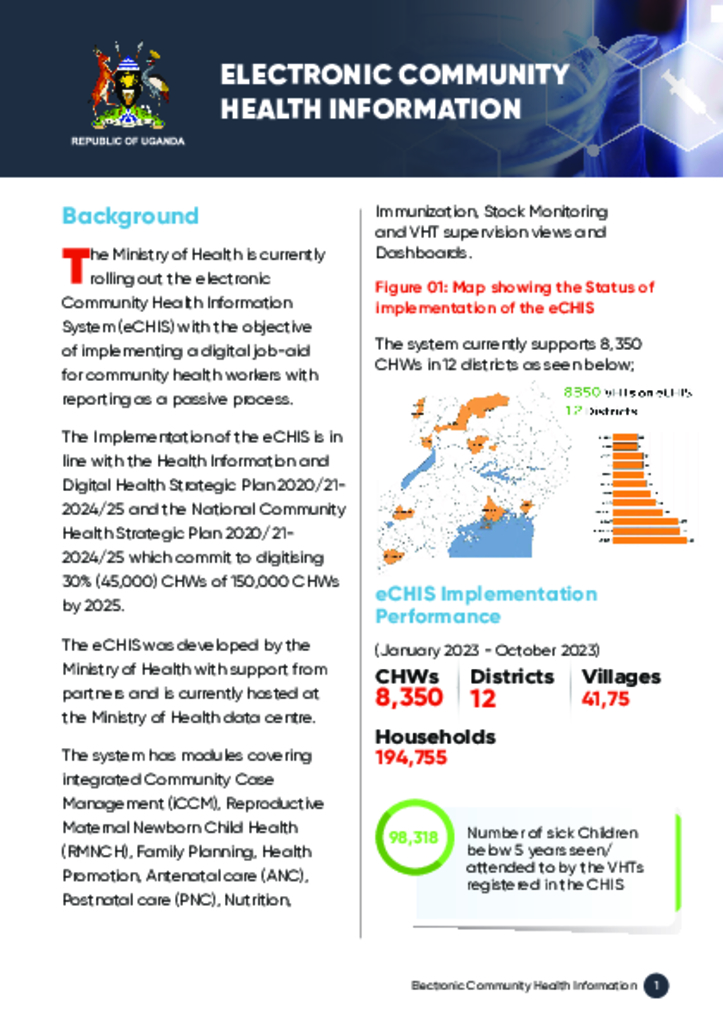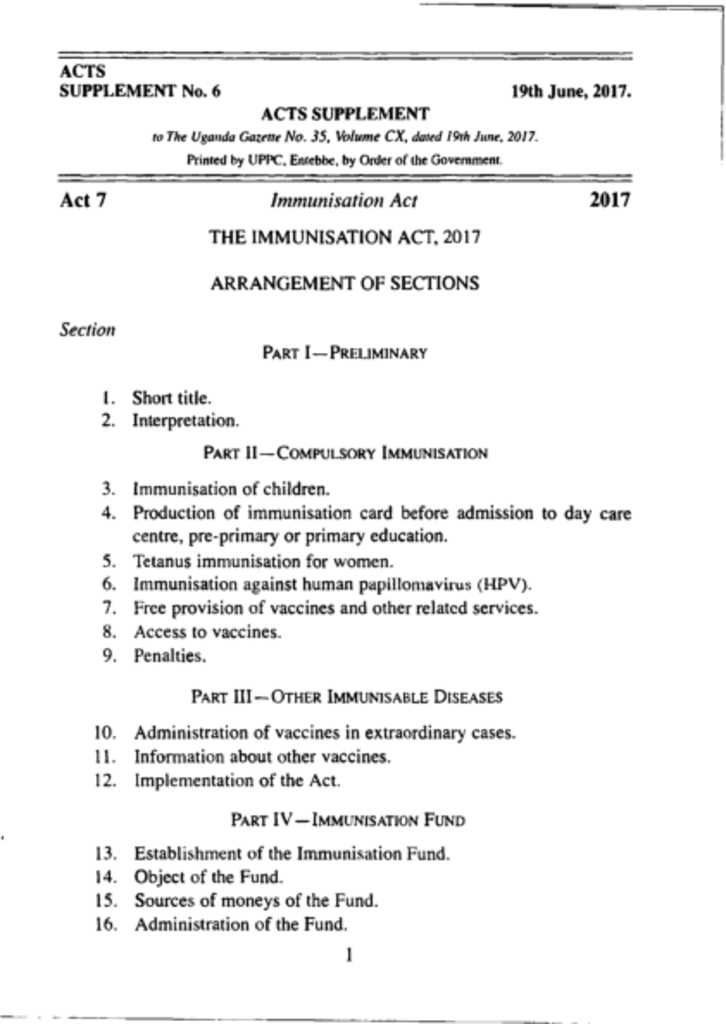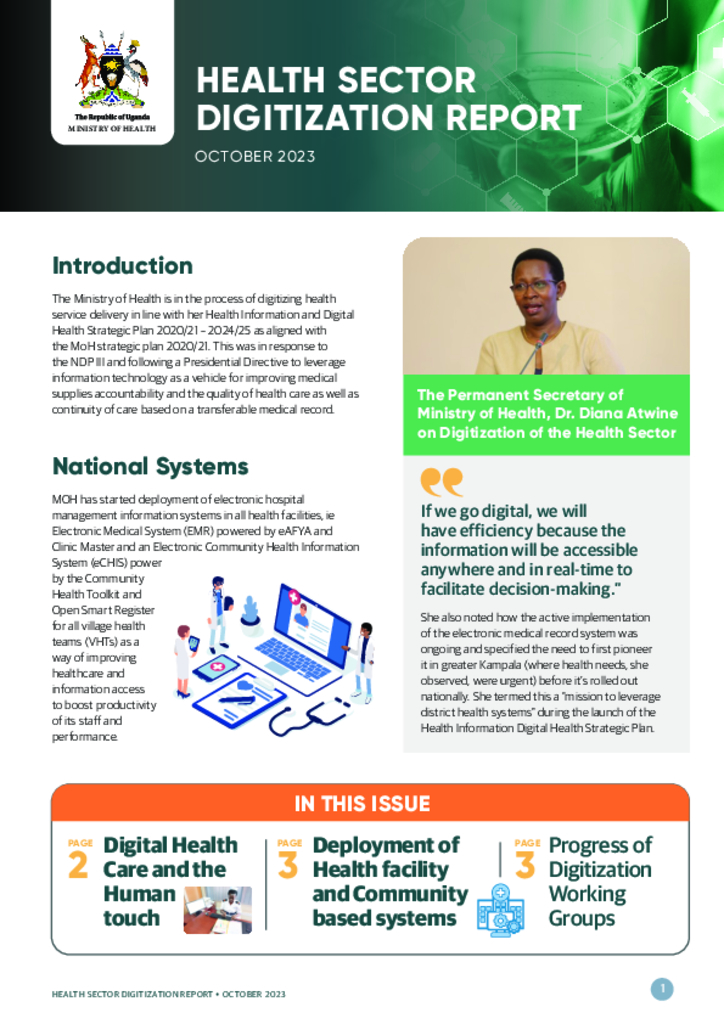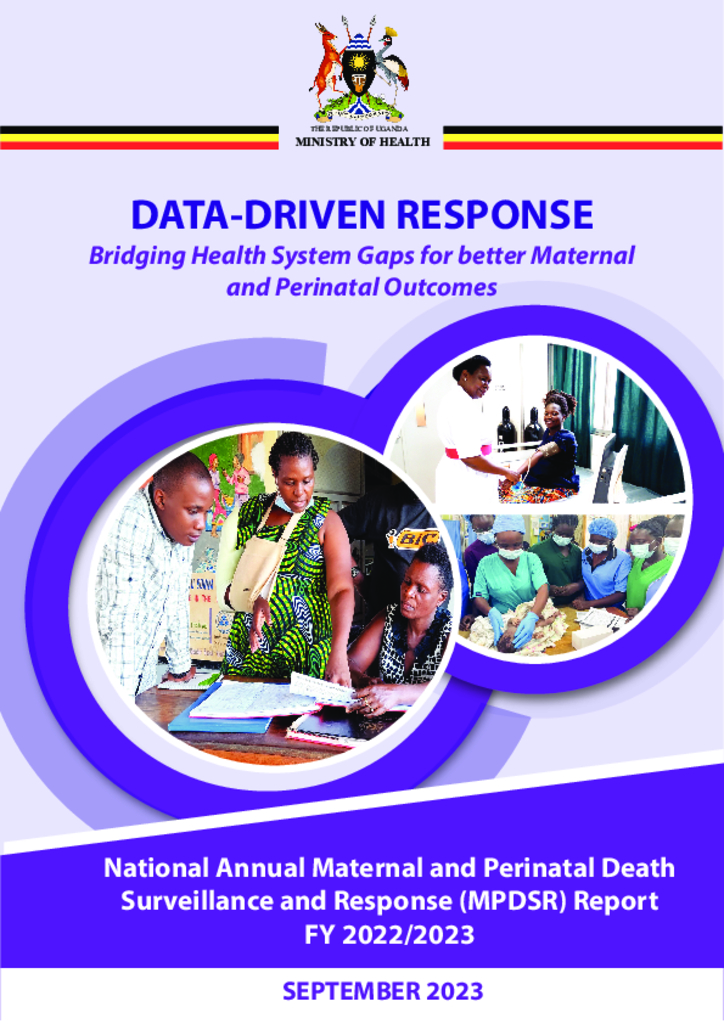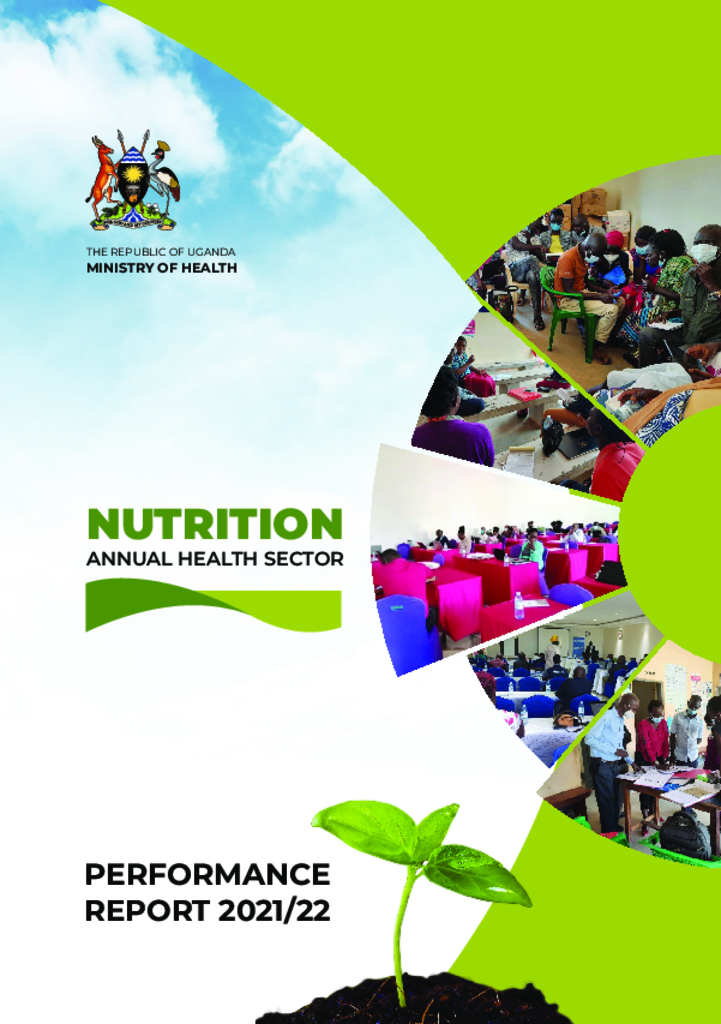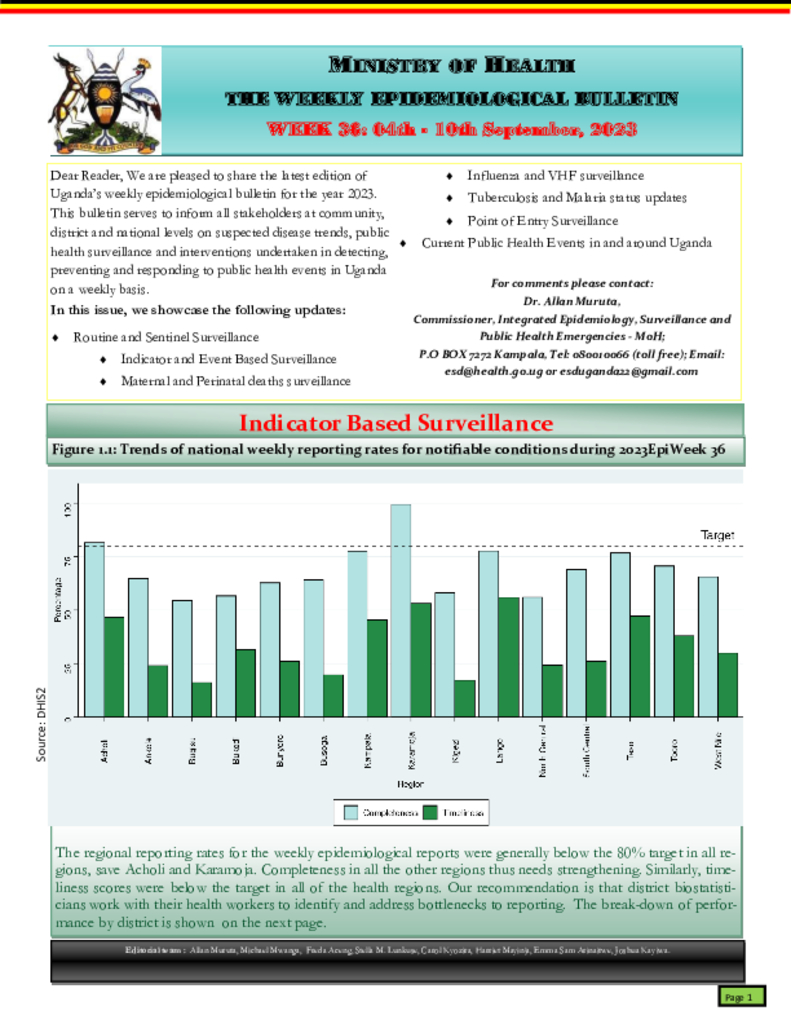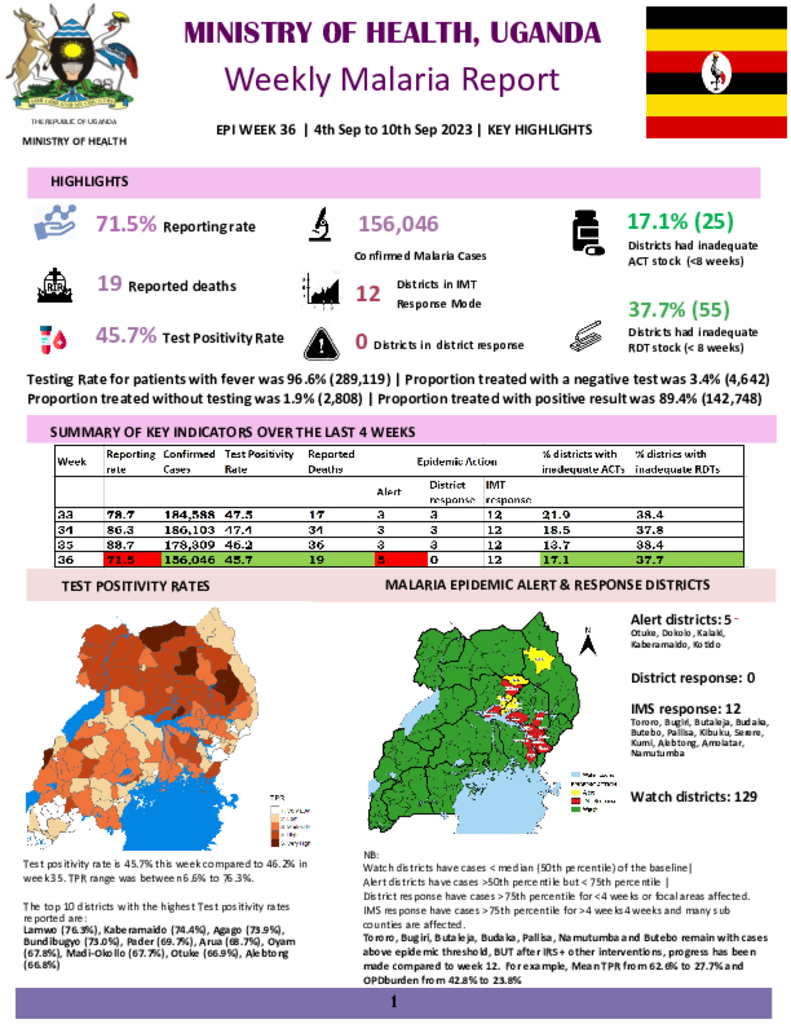This Electronic Community Health Information (eCHIS) Bulletin, is a documentation of the progress made in the implementation of a Ministry of Health, digital job aid for community health workers with reporting as a passive process
An Act to provide for compulsory immunisation of children, women of reproductive age and other target groups against immunisable diseases; to establish the Immunisation Fund and to provide for other incidental matters
This National Immunization Programme Review (NIPR) integrated the EPI review with an operational research study to assess the barriers to utilization of EPI services, Maternal and Neonatal Tetanus Elimination post-validation assessment (MNTE-PVA) and assessment of the impact of COVID-19 on immunization services. Makerere University School of Public Health as an external team to the EPI programme constituted the lead team. The rest of the review team consisted of a national and international team, namely content experts from the WHO, Ministry of Health, UNICEF, PATH and CHAI.
The Ministry of Health is in the process of digitizing health service delivery in line with her Health Information and Digital
Health Strategic Plan 2020/21 – 2024/25 as aligned with the MoH strategic plan 2020/21. This was in response to the NDP III and following a Presidential Directive to leverage information technology as a vehicle for improving medical supplies accountability and the quality of health care as well as continuity of care based on a transferable medical record.
The 2023 Uganda National Digital Health Conference slated for 13th and 14th November 2023 will bring together thought leaders, policymakers, researchers, innovators, practitioners, private sector, digital health vendors, consumers and funders to discuss Uganda’s progress in implementing digital health initiatives and how the country can tap into opportunities presented by digital health. Successes, challenges and lessons learnt in implementing the digital initiatives from Uganda’s perspective will be shared to benefit stakeholders and also those outside Uganda. The conference will feature keynote presentations, panel discussions, poster presentations and demonstration/exhibition booths.
MPDSR emphasizes continuous identification and reporting of maternal and perinatal deaths including zero for none registered and utilising that information to facilitate Quality Improvement (QI) processes. The national MPDSR annual report FY 2022/23 is a result of concerted efforts of health workers that have been involved in notifying, reviewing, reporting, and following up on responses through both the sub-national and national maternal and perinatal death and response (MPDSR) committees.
The key highlight in this edition is the site handovers for the construction of modern Intensive Care Units (ICUs) in the three health facilities at Arua, Hoima, and Kabale Regional Referral Hospitals that took place on the 15th, August, 23rd August, and 1st September 2023, respectively.
The Ministry of Health through the nutrition division is responsible for fast-tracking efforts to reduce the burden of malnutrition in the country and contribute to the wellbeing and national development of the country. This report provides a summary of the status and progress on key nutrition indicators in FY 2021- 2022 in Uganda, although data from previous periods 2020/21 is used to contextualize data for trend analyses.
This bulletin serves to inform all stakeholders at community, district and national levels on suspected disease trends, public health surveillance and interventions undertaken in detecting, preventing and responding to public health events in Uganda on a weekly basis.
This document is a statistical report on malaria activities that occurred at the various administrative levels during the reporting period.
The FP-CIP II has been developed to provide a strategic direction for family planning programming and elaborates how the multisectoral approach will play a role in not only addressing fertility concerns but also ensuring quality family planning services and information for women and men of reproductive age.
This document is a Malaria Surveillance Status Report for the month of July 2023.
